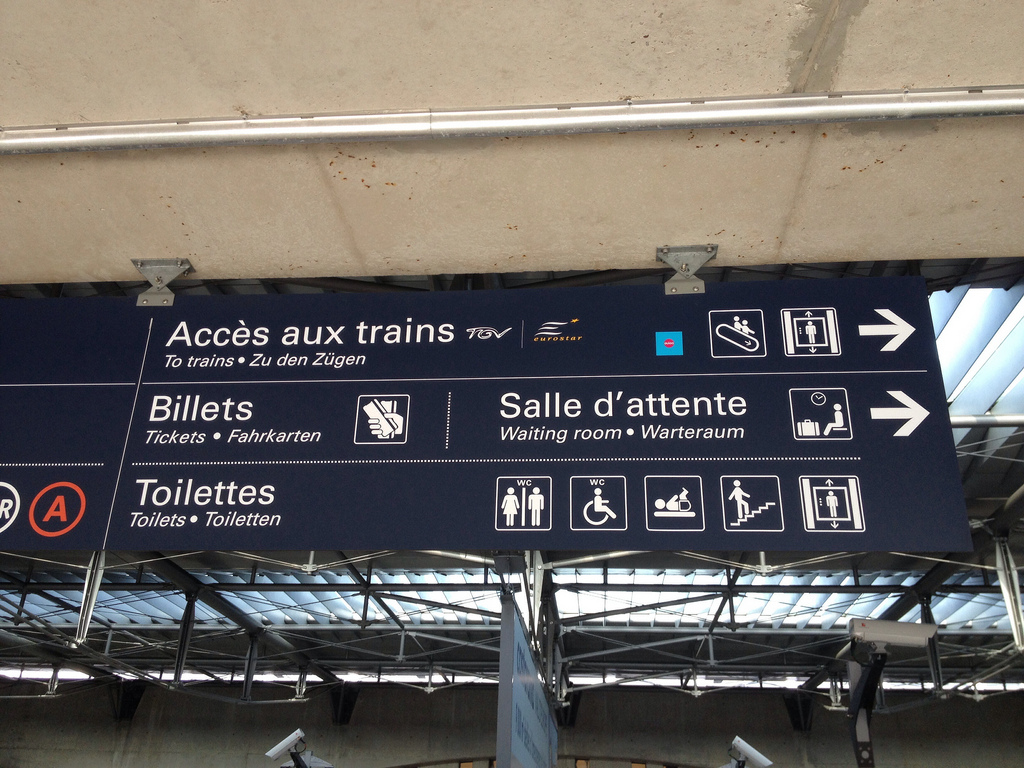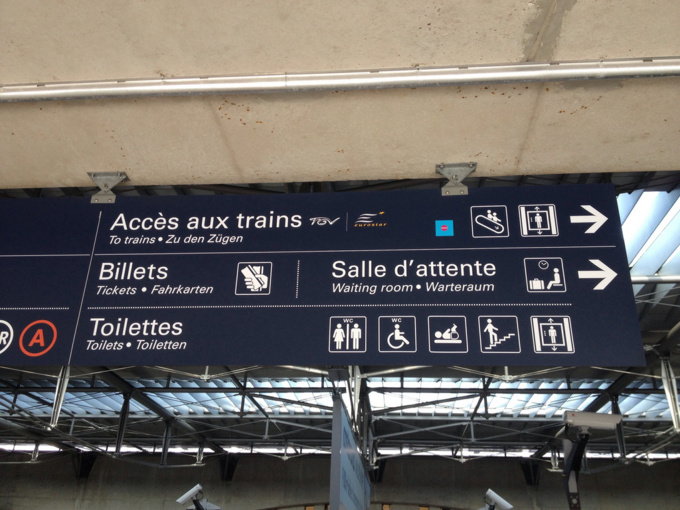Until June, the trains be absent every two days in a row out of five. As a result, it is expected that only 12% of high-speed long-distance trains and 13% of ordinary long-distance trains will leave train sheds. Only 14-30% of suburban trains will carry passengers. The life of people working in large cities, but living in the suburbs, will turn into a daily nightmare. "Railway men would not be ashamed to block the entire France," said CGT Secretary General Philippe Martinez.
The situation is slightly better with international shipments that are provided by joint ventures, such as the northbound Thalys, bound for Switzerland Lyria, as well as Eurostar. In these cases, 75-90% of the traffic will remain. Staff of the state airline Air France Railway workers decided to support their colleagues and joined the strike too.
Workers of railways are struggling to preserve their privileges received back in 1909. Among them are protection against dismissals for economic reasons, increased leave for 28 business days and 10 holidays, the right to early retirement from 52 to 57 years with higher pension payments than other categories of the population. Now, the government argues that working conditions have changed and the work of a stoker cannot be compared with the work of a high-speed train driver.
However, the main thing in the reform is not "an attack on workers' rights", which trade unions are talking about. The new law does not mean that the railroad workers will be deprived of the existing privileges. Change of status will affect only those who will come to work afterwards. Brussels requires market competition, but the government of Prime Minister Edouard Philippe is confident that in its present form the SNCF will not survive it.
The law that the government is preparing suggests a deep reform of railroads burdened with debts, obsolete equipment and artisanal management. In the 1970s, France was the first to rely on high-speed rail. Its TGV ("train a grande vitesse", the "high-speed train") remains the best in Europe, but is getting old right in front of the eyes. Speaking on Tuesday in parliament at a special session of the National Assembly, Prime Minister reminded that the debts of railways amounts to more than € 40 billion, while the state annually sends another € 14 billion. The returns are small. "We pay 22% more than ten years ago, and the SNCF is getting worse," he said.
The government is not going to privatize the SNCF, but intends to make it a public company responsible for its actions. There is a special problem with local lines, which the authorities are going to hand back to local budgets. "I respect the strikers," said Edouard Philippe. "They have the constitutional right to strike, but if we respect them, then millions of French people also have the right to respect, work, movement."
The government is in a difficult situation. It is impossible to prohibit strikes as they are the right of workers. But to make concessions to them is also problematic.
Advisors to President Macron tend to recall how the British government fought and won the trade unions during the time of Margaret Thatcher. This victory allowed the country to develop successfully. However, no one knows how to proceed with the reform so as not to damage the country and not clash with the trade unions. French experts agree that if President Emmanuel Macron retreats, he will never be able to press for reforms that do not meet with unanimous approval. But perhaps anger against the trade unions will help him. The French TV channels showed Mr. Macron's journey through the streets of the town where he spent the weekend. From the crowd there was a cry: "Do not yield to the SNCF!" President replied: "Don't worry!"
source: theguardian.com
The situation is slightly better with international shipments that are provided by joint ventures, such as the northbound Thalys, bound for Switzerland Lyria, as well as Eurostar. In these cases, 75-90% of the traffic will remain. Staff of the state airline Air France Railway workers decided to support their colleagues and joined the strike too.
Workers of railways are struggling to preserve their privileges received back in 1909. Among them are protection against dismissals for economic reasons, increased leave for 28 business days and 10 holidays, the right to early retirement from 52 to 57 years with higher pension payments than other categories of the population. Now, the government argues that working conditions have changed and the work of a stoker cannot be compared with the work of a high-speed train driver.
However, the main thing in the reform is not "an attack on workers' rights", which trade unions are talking about. The new law does not mean that the railroad workers will be deprived of the existing privileges. Change of status will affect only those who will come to work afterwards. Brussels requires market competition, but the government of Prime Minister Edouard Philippe is confident that in its present form the SNCF will not survive it.
The law that the government is preparing suggests a deep reform of railroads burdened with debts, obsolete equipment and artisanal management. In the 1970s, France was the first to rely on high-speed rail. Its TGV ("train a grande vitesse", the "high-speed train") remains the best in Europe, but is getting old right in front of the eyes. Speaking on Tuesday in parliament at a special session of the National Assembly, Prime Minister reminded that the debts of railways amounts to more than € 40 billion, while the state annually sends another € 14 billion. The returns are small. "We pay 22% more than ten years ago, and the SNCF is getting worse," he said.
The government is not going to privatize the SNCF, but intends to make it a public company responsible for its actions. There is a special problem with local lines, which the authorities are going to hand back to local budgets. "I respect the strikers," said Edouard Philippe. "They have the constitutional right to strike, but if we respect them, then millions of French people also have the right to respect, work, movement."
The government is in a difficult situation. It is impossible to prohibit strikes as they are the right of workers. But to make concessions to them is also problematic.
Advisors to President Macron tend to recall how the British government fought and won the trade unions during the time of Margaret Thatcher. This victory allowed the country to develop successfully. However, no one knows how to proceed with the reform so as not to damage the country and not clash with the trade unions. French experts agree that if President Emmanuel Macron retreats, he will never be able to press for reforms that do not meet with unanimous approval. But perhaps anger against the trade unions will help him. The French TV channels showed Mr. Macron's journey through the streets of the town where he spent the weekend. From the crowd there was a cry: "Do not yield to the SNCF!" President replied: "Don't worry!"
source: theguardian.com



















